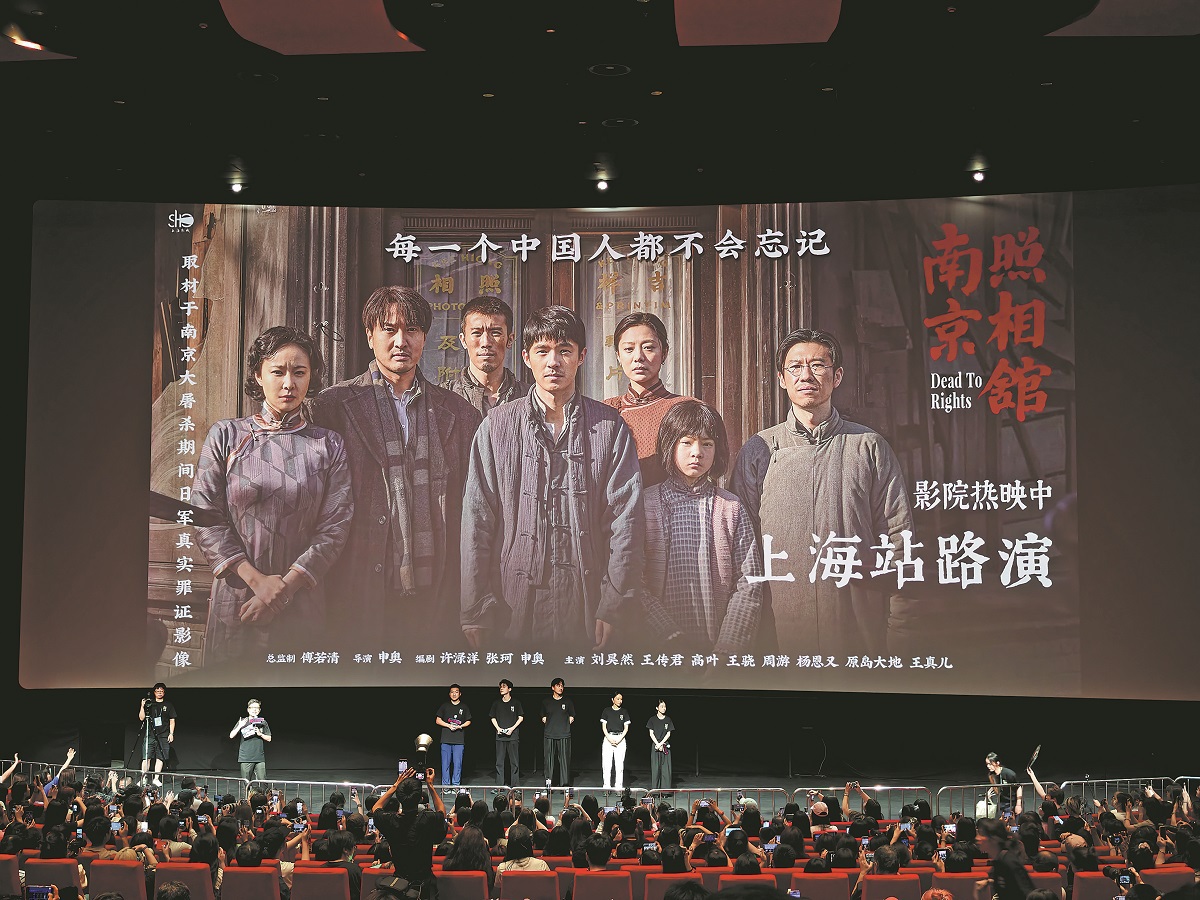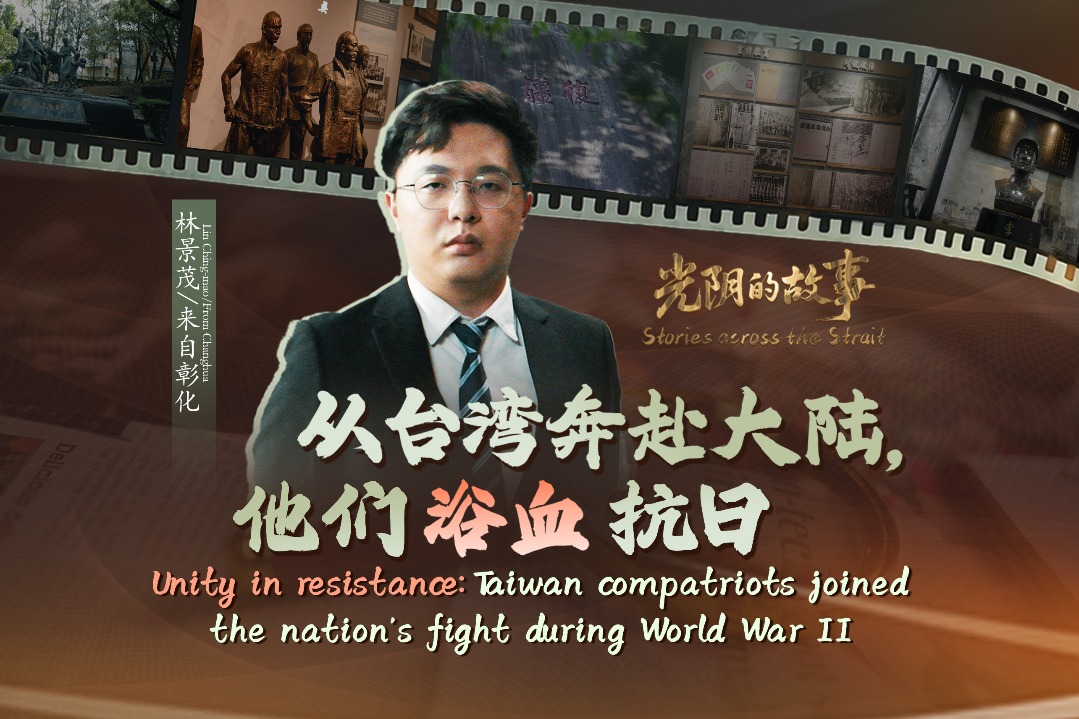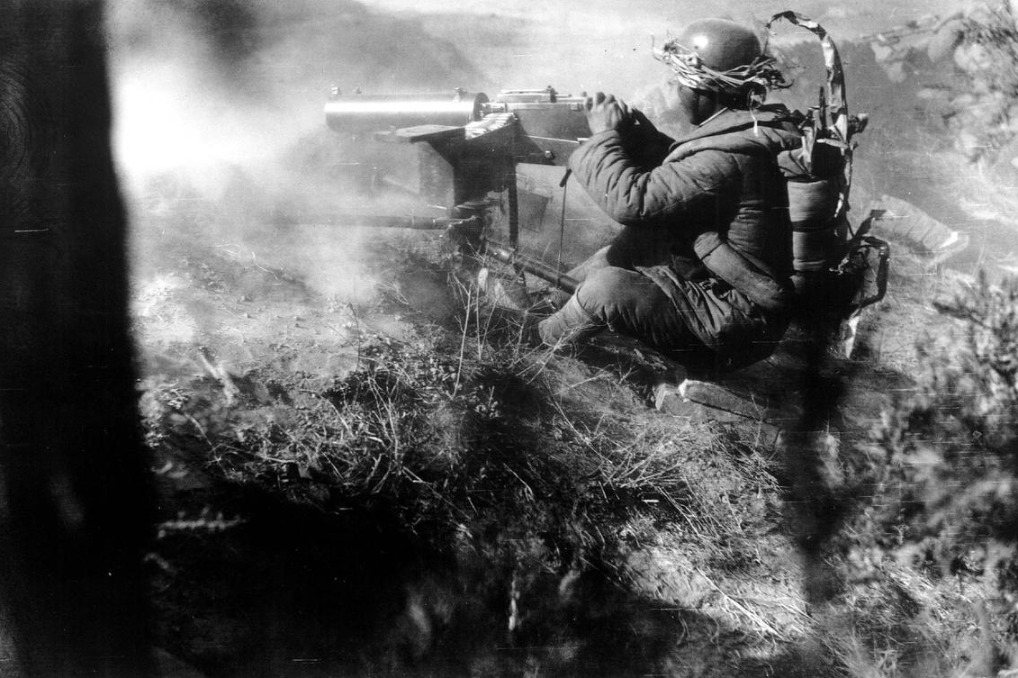'Dead to Rights' smashes box office records, raises awareness
Film set during Nanjing Massacre tells of unsung heroes' courage to reveal atrocities


While the film Dead to Rights, with the original Chinese title translated to Nanjing Photo Studio, smashes summer box office records, it is also reigniting national awareness of a dark chapter in China's history and the courage of unsung heroes who stood up to fascism and brutality.
Set against the backdrop of the Nanjing Massacre perpetrated by Japanese troops in China during World War II, the film's takings surpassed 2.2 billion yuan ($308 million) on Sunday, according to movie-tracking data.
The takings are a record for historical films screened during China's summer movie season, which runs from June to August.
Marking the 80th anniversary of the victory in the Chinese People's War of Resistance Against Japanese Aggression (1931-45), the film tells the story of a group of Nanjing residents, who sought refuge in a photo studio after the city's occupation by Japanese invaders.
Forced to develop film for a Japanese military photographer, they discover photographic evidence of atrocities and risk their lives to smuggle the negatives out. The film has ignited nationwide interest since its July 25 release, according to media reports.
The narrative of the historical drama draws on real events. The Nanjing Massacre began when Japanese troops captured Nanjing, Jiangsu province, on Dec 13, 1937. Over six weeks, they slaughtered approximately 300,000 Chinese civilians and unarmed soldiers.
An apprentice at a photo studio in Nanjing secretly compiled an album of 16 photos of the atrocity taken by Japanese soldiers. These images ultimately became key evidence during subsequent war crime trials.
























